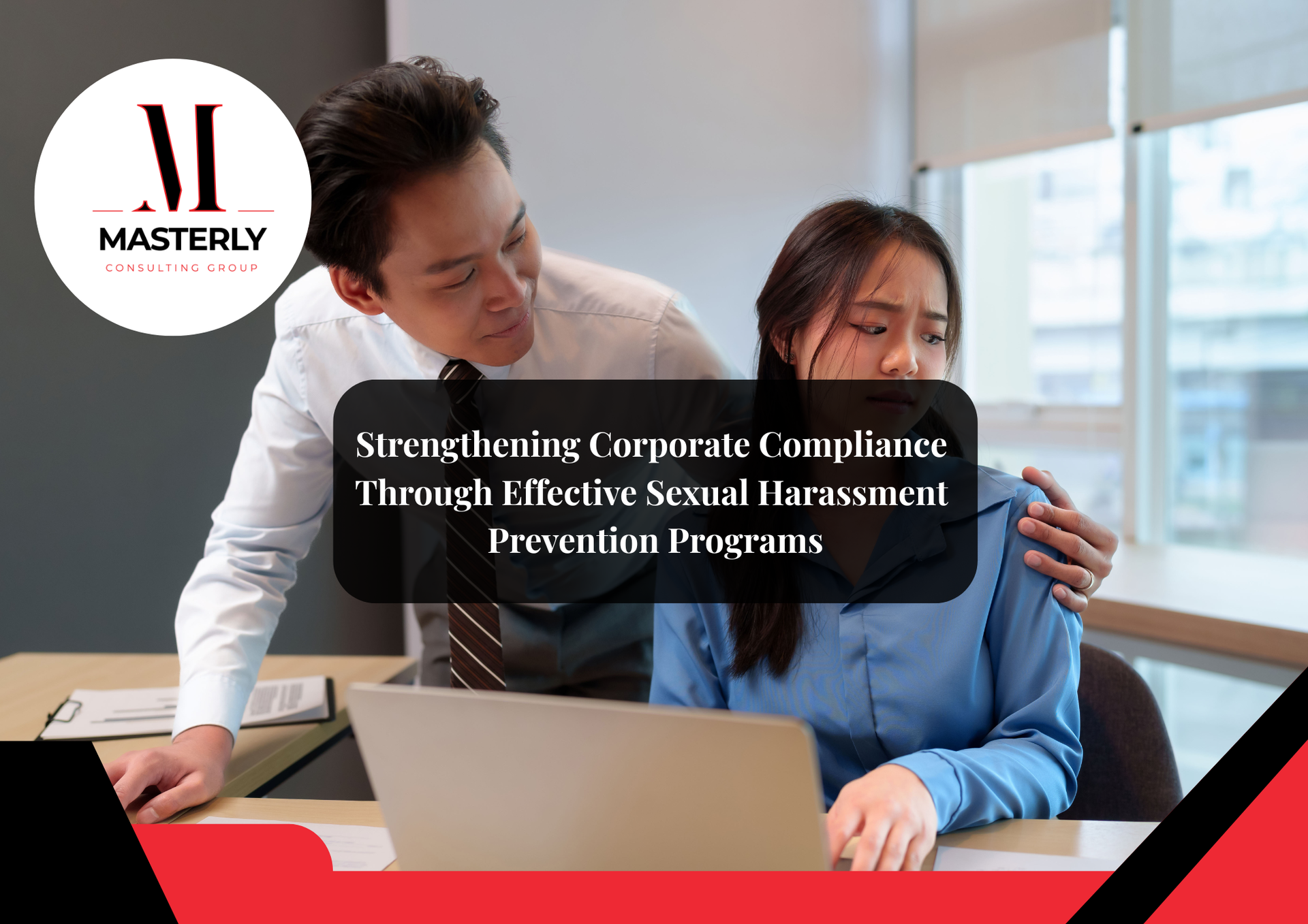Sexual Harassment Training for Employees That Every HR Department Needs Now
The Urgent Need for Sexual Harassment Training
Sexual harassment training is not optional anymore—it is a compliance and culture necessity. Schools, universities, and workplaces across the country face growing scrutiny over how they protect employees and students. Institutions that delay such training risk lawsuits, reputational harm, and a toxic workplace culture. Acting now allows HR departments to safeguard both their organizations and their people.
Harassment in the Workplace Is More Common Than You Think
Reports of harassment in the workplace have increased in recent years. From offensive jokes to inappropriate behavior, employees often face environments that are neither safe nor supportive. Without workplace harassment training, organizations leave themselves exposed to legal and financial risk. Every HR department must prioritize structured, ongoing programs that address instances of misconduct effectively.
Why Compliance Training Cannot Wait
Federal and state laws set harassment training requirements that employers cannot ignore. The Civil Rights Act, federal laws, and specific state laws establish minimum standards that organizations must meet. In many states, the law requires employers with five or more employees to provide structured training. Delaying or neglecting compliance training not only increases liability but also damages employee morale.
Training Requirements Vary by State
Each state sets its own training requirements, and some like York State and York City employers have stricter rules. Illinois employers also face unique obligations regarding sexual harassment prevention. HR departments need up to date knowledge of current regulations to ensure they meet federal and state laws consistently. Ignoring these details leaves organizations at risk of non-compliance.
Understanding Sexual Harassment Training Requirements
Sexual harassment training requirements specify what topics must be covered. Employers must ensure that new employees, non supervisory employees, and those in supervisory roles all receive training. Some states mandate annual training, while others require initial training within a set start date after hiring. Schools and universities must follow these rules for employees working across campuses.
The Role of Sexual Harassment Prevention Training
Sexual harassment prevention training equips employees with practical tools to recognize, report, and stop misconduct. By educating employees on the key concepts of harassment, employers create a stronger foundation for accountability. Prevention is far more effective than reacting after damage has been done. The training content must focus on sexual harassment prevention policy, addressing both clear violations and subtle inappropriate behavior.
Workplace Harassment Training Course Options
Organizations can choose from different workplace harassment training course formats. Some opt for online training modules accessible by mobile device, while others prefer in-person training programs for better interaction. A strong program includes real-world examples, role-playing, and bystander intervention training. These courses give employees confidence to report harassment and recognize unlawful harassment quickly.
The Importance of Workplace Harassment Prevention Training
Workplace harassment prevention training helps HR teams combat workplace harassment proactively. By setting clear expectations, it fosters a respectful work environment where employees feel supported. This type of program is essential not just for supervisory employees, but also for non supervisors who often witness misconduct. When every team member understands how to respond, employers can more easily prevent escalation.
Building a Respectful Work Environment
Creating a respectful work environment is essential for long-term employee morale. Harassment prevention training and inclusion training allow HR departments to address sensitive issues like sexual orientation, gender expression, and national origin. Protecting against unlawful discrimination requires more than policy—it requires providing training that transforms culture.
Harassment Prevention Training That Meets Standards
HR departments must carefully select harassment prevention training that satisfies sexual harassment training requirements. Effective programs include harassment prevention, preventing harassment, and ways to address workplace harassment. They also teach employees to recognize illegal harassment and differentiate between various forms of misconduct. Schools and universities benefit from supplemental training sessions to reinforce lessons.
Workplace Harassment Training as Risk Management
Workplace harassment training is a form of risk management. It not only fulfills training requirements but also reduces exposure to costly lawsuits. When HR leaders can show documented efforts to provide sexual harassment training, they demonstrate commitment to harassment prevention. Courts often view employers more favorably when they can show good-faith efforts in compliance training.
How Workplace Training Protects Employers
Reduces Liability
Following harassment training requirements and sexual harassment training requirements reduces exposure under federal laws and state laws.
Improves Workplace Culture
Effective workplace harassment prevention training strengthens the overall workplace culture.
Prevents Escalation
Employees who know how to address instances of misconduct act before problems worsen.
Annual Training and Ongoing Compliance
Many states require annual training or refreshers for supervisory employees and non supervisory employees alike. Supplemental training sessions may also be needed when policy changes occur. Employers with three or more employees or five or more employees must carefully follow mandates for continued compliance.
Training Programs Tailored to HR Needs
The Masterly Consulting Group designs training programs specific to universities, K-12 schools, and other institutions. We focus on educating employees in practical ways that prevent misconduct. From conflict resolution to recognizing inappropriate behavior, our sessions align with both state laws and federal laws. Each program includes training content that addresses key concepts clearly.
Sexual Harassment Training and Workplace Violence Training
Beyond harassment, some states also mandate workplace violence training to protect employees from physical threats. By combining these requirements, HR departments create a comprehensive compliance and safety strategy. Our team ensures that organizations not only meet legal obligations but also build safer workplaces for everyone.
The Role of Technology in Training
Online training makes it easier for HR teams to deliver workplace harassment training courses across multiple campuses. With technical support available, schools and businesses can ensure employees stay engaged. Allowing access by mobile device ensures flexibility for busy staff and faculty.
Harassment Training Course Structure
A well-designed harassment training course should include:
- Clear explanations of sexual harassment and workplace harassment
- Steps to report harassment safely and effectively
- Examples of offensive jokes, illegal harassment, and other forms of misconduct
- Guidance for both supervisory roles and non supervisors
Preventing Harassment with Up to Date Policies
Preventing harassment requires up to date policies and sexual harassment prevention policy updates. When organizations fail to refresh rules, they fall behind federal laws and state laws. Regular reviews ensure policies match current legal standards and harassment training requirements.
The Benefits of Harassment Training for Employees
- Improved employee morale and confidence
- Clear understanding of training requirements
- Ability to address workplace harassment promptly
- Stronger workplace culture and inclusivity

Training Content That Resonates
Generic materials are not enough. Effective training content must focus on real challenges employees face. We use scenarios involving new employees, supervisory employees, and non supervisory employees to illustrate how to react in real-world cases.
Meeting the Needs of Every Employer
Different employers have different challenges. Family schools, universities, and institutions with one or more employees must comply. Even mid-sized organizations face risks if they ignore harassment prevention training. No matter the size, every organization benefits from structured workplace harassment training.
How The Masterly Consulting Group Can Help
We provide both in-person and virtual sexual harassment training tailored for the education sector. Our experts ensure your HR department not only complies with training requirements but also strengthens its culture. By working with us, your organization receives guidance on harassment training requirements, annual training, and specialized harassment training courses for all employees.
Contact The Masterly Consulting Group Today
Delaying action on sexual harassment training puts your school, university, or organization at risk. At The Masterly Consulting Group, we help HR departments deliver sexual harassment prevention training, workplace harassment training, and harassment prevention training that meets all state laws and federal laws. Our team provides both virtual and in-person solutions to ensure every employee is protected, educated, and prepared.
Contact us at (888) 209-4055 to book a free consultation. We will review your training requirements, evaluate your current programs, and create tailored solutions to protect your institution and employees. Now is the time to act—before a single incident becomes a costly crisis.
The Missed Opportunities of Not Using HR Consulting Services for Small Business Performance Tracking







